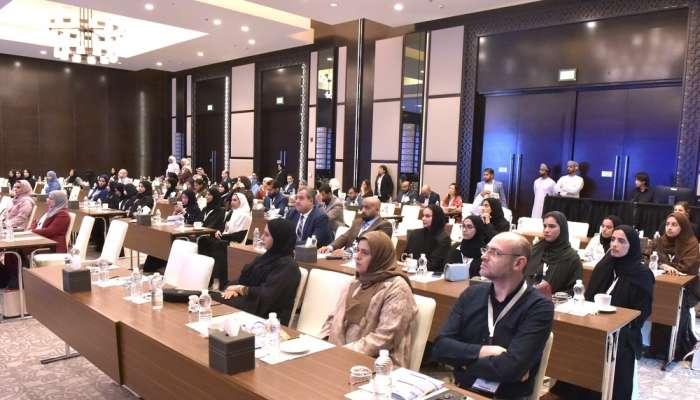
Muscat: The 5th International Middle East Genetics and Metabolic Academy (MEGMA) symposium kicked here on Thursday under the auspices of Dr. Said Hareb Al Lamki, Undersecretary of the Ministry of Health for Health Affairs, in the presence of Professor Majid Abdullah Al Fadl, Head of Genetics and Precision Medicine Department at King Abdullah Specialised Hospital.
The three-day symposium is organised by the Oman Society for Genetic Medicine in cooperation with the Middle East Genetics and Metabolism Academy.
The symposium inludes lectures by 55 speakers from the GCC countries and other parts of the world, with the participation of 150 medical genetics’ specialists.
The symposium aims to enhance knowledge and collaboration in medical genetics, promote professional networking, and support career development for medical genetics’ specialists.
The first day's programme of the symposium addressed challenges and reviewed key strategies in management, early detection strategies for MPS II and management outcomes, clinical, chemical, and laboratory genetics, response to niacin treatment in a patient with a NAXE gene defect, an overview of Mucopolysaccharidosis type X, non-simple diarrhea: intestinal genetics, management of hereditary metabolic acidosis, advancements in PKU management: new perspectives and emerging treatments, approaches to developing new treatments for rare diseases, spinal muscular atrophy in children: the impact of timely diagnosis on treatment outcomes.
The symposium continues on its second and third days with a workshop on epidermolysis bullosa in the Middle East and North Africa, addressing several topics including molecular epidemiology in Arab countries/mutation analysis, newborn care in early childhood diagnostics and immediate care, characterisation of a new rare muscle disease: from clinical diagnosis to functional analysis, updates on emerging precision therapies for inborn errors of metabolism, integrating genomics and metabolomics to improve rare disease diagnosis outcomes, clinical and molecular characterization of familial hypercholesterolemia in the Omani population, and the impact and benefits of genetic sequencing in families affected by chronic kidney disease in Oman.